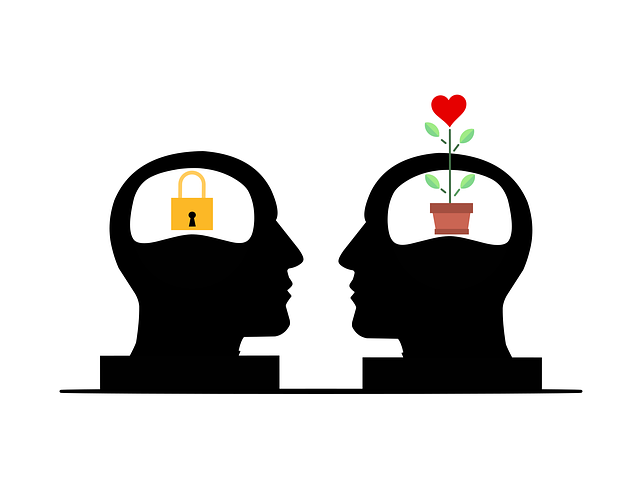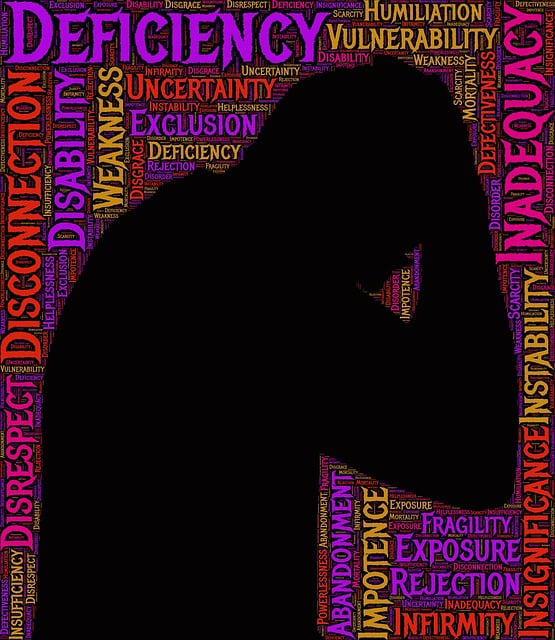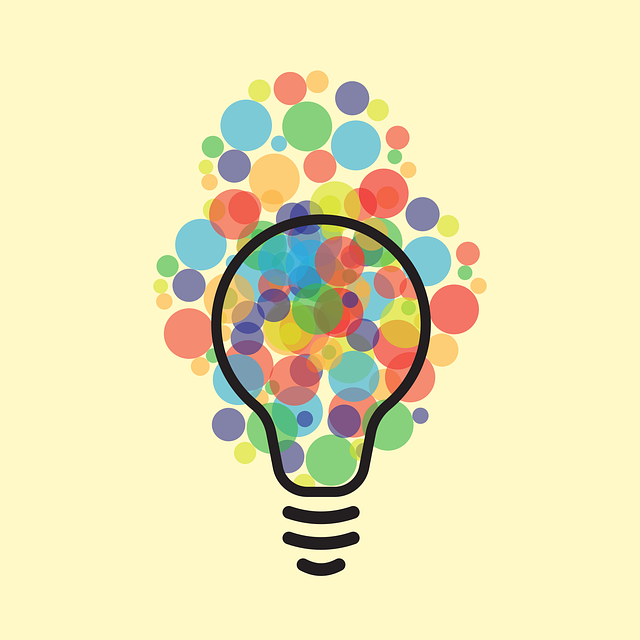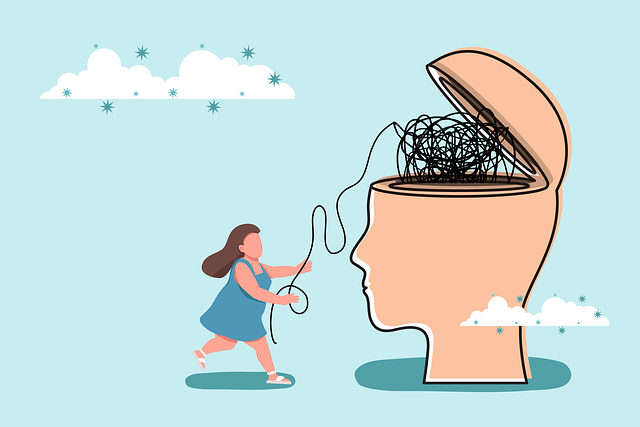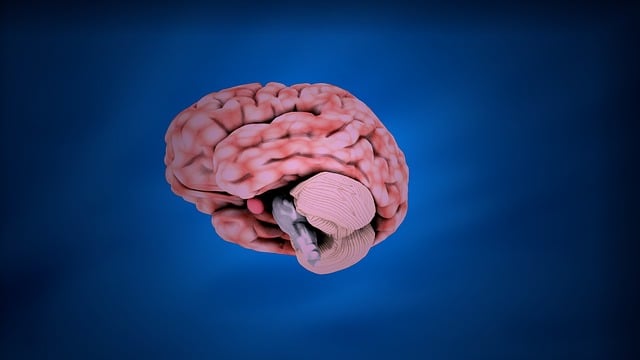Mental wellness self-assessment tools incorporating Golden Trauma Therapy (GTT), Mind Over Matter principles, and emotional intelligence offer valuable insights for personal growth and improved mental health in a fast-paced world. GTT's innovative approach focuses on complex trauma's impact, helping individuals process past traumas to understand current emotional challenges. These assessments identify key areas like emotional health, stress management, and interpersonal relationships, enabling tailored self-care routines. Integrating GTT with evidence-based practices ensures accurate evaluation and effective interventions for diverse cultural backgrounds, promoting resilience and proactive mental wellness support.
Mental wellness self-assessment tools are powerful resources for personal growth. In today’s fast-paced world, understanding our mental health is crucial. This article delves into the development of such tools, focusing on the integration of Golden Trauma Therapy. We explore key areas for assessment, effective technique design, and strategies for leveraging feedback to foster personal growth. By understanding these aspects, individuals can navigate their mental wellness journeys with greater clarity and purpose.
- Understanding Mental Wellness Self-Assessment Tools
- The Role of Golden Trauma Therapy in Self-Assessment
- Identifying Key Areas for Assessment
- Developing Effective Assessment Techniques
- Integrating Feedback and Personal Growth Strategies
Understanding Mental Wellness Self-Assessment Tools

Mental Wellness Self-Assessment Tools are designed to help individuals gain insights into their emotional and psychological state. These tools facilitate a deeper understanding of one’s mental wellness, identifying areas for improvement and fostering personal growth. By incorporating techniques from Golden Trauma Therapy, Mind Over Matter Principles, and Emotional Intelligence, these assessments provide valuable guidance for those seeking to enhance their overall well-being. They encourage positive thinking and self-reflection, empowering individuals to take charge of their mental health and navigate life’s challenges more effectively.
These tools are particularly useful in today’s fast-paced world where stress, anxiety, and depression have become prevalent. They offer a safe and confidential space for users to explore their thoughts and feelings without judgment. Moreover, they can be readily accessible, allowing individuals to regularly monitor their mental wellness progress and make necessary adjustments. Ultimately, these self-assessment tools serve as valuable resources in the pursuit of optimal mental health and happiness.
The Role of Golden Trauma Therapy in Self-Assessment

Golden Trauma Therapy (GTT) offers a unique and innovative approach to mental wellness self-assessment, particularly beneficial in addressing complex trauma and its impact on individuals. This therapy utilizes a holistic framework that goes beyond traditional assessment methods by considering the intricate relationship between traumatic experiences and psychological well-being. GTT encourages clients to explore and process their past traumas, fostering a deeper understanding of current emotional challenges.
By integrating GTT into self-assessment tools, community outreach programs can enhance coping skills development in participants. This therapy empowers individuals to challenge and reframe trauma’s influence on their lives, promoting resilience and personal growth. Moreover, the implementation of such therapeutic techniques requires meticulous risk management planning for mental health professionals to ensure a safe and supportive environment, which is crucial for effective GTT delivery.
Identifying Key Areas for Assessment

In developing a comprehensive mental wellness self-assessment tool, identifying key areas that contribute to an individual’s overall well-being is paramount. These areas often intersect with various aspects of life, including emotional health, stress management, and interpersonal relationships. For instance, tools like Golden Trauma Therapy aim to uncover and address underlying trauma, which can significantly impact current mental health status and future resilience. By integrating such therapeutic approaches into self-assessment practices, individuals can gain valuable insights into their emotional well-being promotion techniques.
Mental Health Awareness plays a crucial role in recognizing these areas. Through user-friendly assessments, individuals can identify personal strengths and weaknesses in managing stress, cultivating healthy habits, and fostering supportive relationships. This awareness serves as a foundation for developing tailored Self-Care Routine Development strategies that cater to unique mental health needs. By focusing on these key aspects, self-assessment tools become powerful facilitators of positive change, empowering folks to take charge of their mental wellness journeys.
Developing Effective Assessment Techniques

Developing effective mental wellness self-assessment tools is a multifaceted process that draws upon Golden Trauma Therapy and other evidence-based practices like Emotional Intelligence and Mind Over Matter principles. These techniques are crucial for accurately gauging an individual’s emotional and psychological state, especially when navigating complex mental health issues. By integrating these approaches, assessors can create a more holistic understanding of clients’ experiences, fostering tailored interventions that address specific needs.
Cultural sensitivity in mental healthcare practice plays a significant role in this development process. Recognizing the diverse cultural backgrounds of individuals seeking support ensures that assessment tools are inclusive and adaptable to different perspectives and belief systems. This consideration is vital for avoiding potential biases and misinterpreting symptoms, thereby enhancing the overall effectiveness and accessibility of mental wellness self-assessments.
Integrating Feedback and Personal Growth Strategies

Integrating feedback into self-assessment tools is a powerful way to facilitate personal growth and mental wellness. The process begins with accurately gathering an individual’s insights and experiences, often through therapeutic techniques like Golden Trauma Therapy. This approach encourages individuals to explore their emotions, memories, and behaviors, providing valuable data for self-reflection. By combining these introspective findings with evidence-based strategies, such as Empathy Building Strategies or Confidence Boosting exercises, users can gain deeper understanding of themselves.
Additionally, incorporating mood management techniques within the assessment tools allows for proactive mental health support. Users can learn to identify triggers and develop coping mechanisms, thereby improving their overall emotional well-being. These integrated strategies not only enhance self-awareness but also equip individuals with practical tools to navigate life’s challenges, fostering a more resilient mindset.
Mental wellness self-assessment tools play a pivotal role in empowering individuals to take charge of their mental health. By incorporating techniques like Golden Trauma Therapy, which focuses on healing and personal growth, these tools can provide valuable insights into key areas of assessment. This article has explored the development process, from understanding the importance of such tools to integrating feedback for positive change. With a strategic approach, these assessments can revolutionize mental healthcare, enabling folks to navigate their emotional journeys with enhanced self-awareness and resilience.

